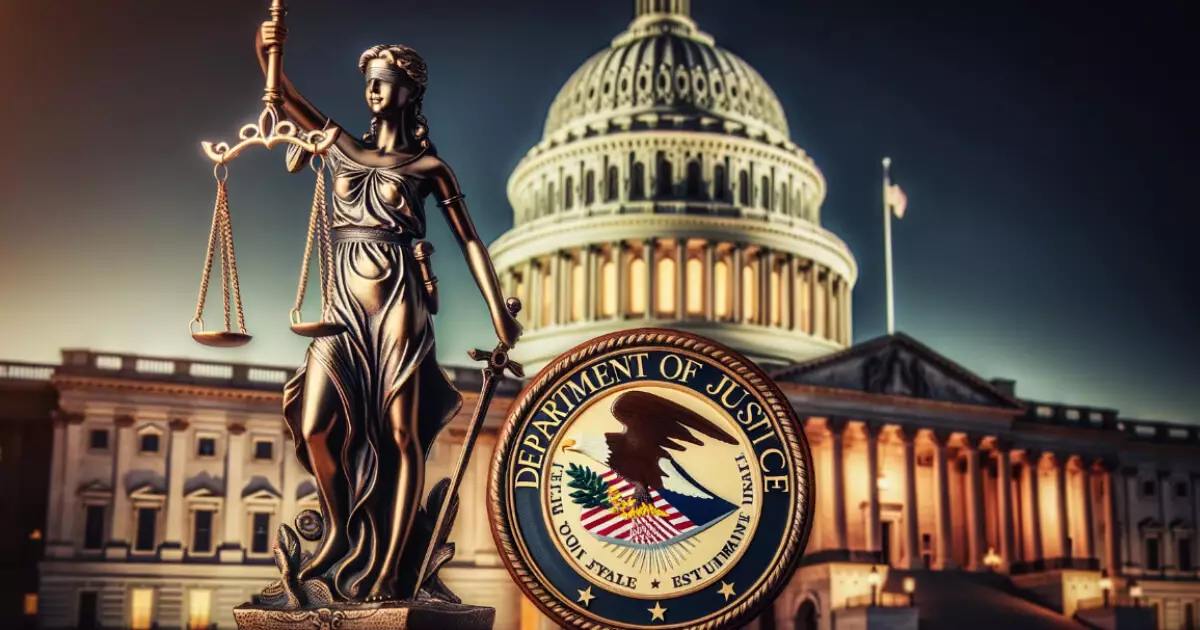U.S. lawmakers are urging the Justice Department to investigate Binance and Tether over allegations of facilitating significant illicit financing to terrorist groups, including Hamas. Senators Cynthia M. Lummis and Representative French Hill have called for decisive action if the firms are found complicit. This article examines the potential consequences of such an investigation and emphasizes the need to distinguish compliant firms from those exploiting the technology unlawfully.
Senator Lummis took to Twitter to express her concerns, stating that cryptocurrency itself is not the enemy but rather the bad actors involved. In a letter to Attorney General Merrick Garland, she called for the DOJ to complete its investigation and consider criminal charges against Binance and Tether, referring to reports that they served as intermediaries for Hamas and engaged in illicit activities.
The letter highlights Binance’s history of ties to illicit financing and its alleged failure to freeze accounts linked to Hamas, which may constitute providing material support to terrorists under federal law. Additionally, the lawmakers suggest that Binance might be neglecting its anti-money laundering diligence requirements. Meanwhile, Tether also faces compliance questions, despite reportedly freezing addresses connected to Hamas at the Israeli authorities’ request.
Addressing Bad Actors and Upholding the Industry
The lawmakers emphasize the importance of holding “bad actors” accountable for enabling illegal activities. They recognize the rising global scrutiny regarding cryptocurrencies’ role in potential sanctions evasion and terrorism funding. The investigation by the Justice Department and any subsequent actions taken could significantly impact policies and enforcement concerning illicit crypto financing. However, it is crucial to differentiate between companies striving for compliance and those exploiting the technology unlawfully.
Although the pseudonymity of cryptocurrencies presents risks of abuse, the majority of companies aim to comply with regulations. The lawmakers raise concerns about the potential negative implications on lawful innovation if the actions of a few unscrupulous actors cast suspicion on the entire industry. They argue that unfairly stigmatizing the entire cryptocurrency industry could hinder its development and deter legitimate businesses from adopting these technologies.
Binance’s International Operations and Unlawful Transactions
According to the letter, Binance is an unregulated exchange based overseas that has a history of facilitating illicit transactions. After media reports revealed numerous Binance accounts linked to Hamas, Israel reportedly ordered the closure of over 100 more accounts. The lawmakers assert that providing accounts to known terrorist organizations, despite public knowledge of the issue, could constitute material support to terrorists under U.S. law.
The allegations against Binance and Tether have prompted U.S. lawmakers to call for an investigation into their potential role in facilitating illicit financing to terrorist groups. It is crucial to distinguish between compliant firms and those engaging in unlawful activities to ensure fair regulation of the cryptocurrency industry. The outcome of the investigation and subsequent actions taken by the Justice Department will significantly shape policies and enforcement efforts targeting illicit crypto financing. Ultimately, the goal should be to strike a balance between combating illegal activities and fostering innovation within the industry.


Leave a Reply